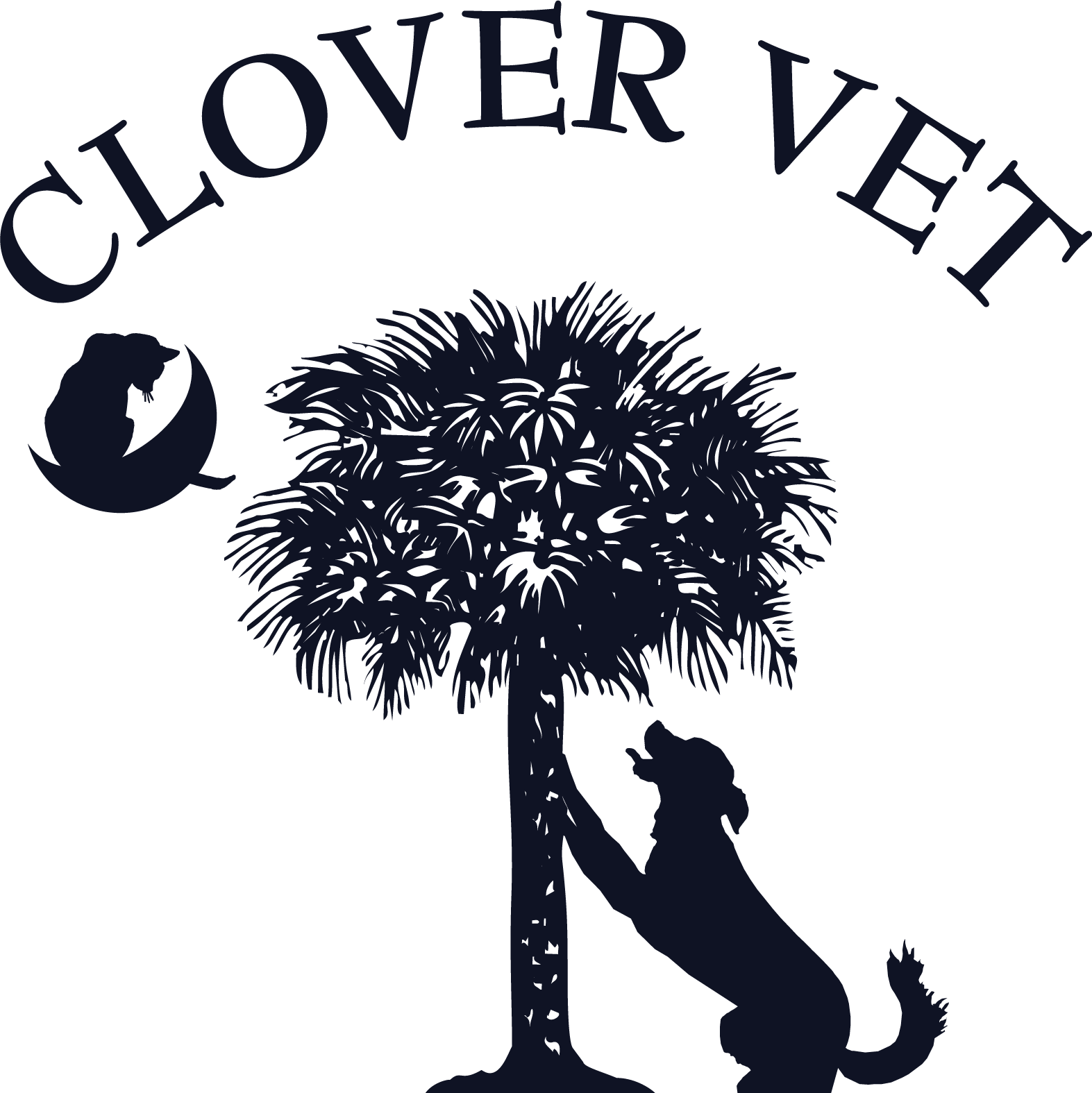Vaccinations FOR CATS
Vaccinations for Cats at Clover Vet
Cats require fewer vaccines than dogs, but protection is just as important, especially for those with outdoor access. We use Purevax vaccines, which are designed for cats, offering advanced protection against major feline diseases without the use of adjuvants - additives that can increase the risk of adverse reactions.
Core Vaccines (Recommended for All Cats)
- Rabies: Mandatory in South Carolina, this vaccine is given at 12-16 weeks, with boosters every 1-3 years. We often combine it with other vaccines for fewer injections.
- FVRCP (Feline Viral Rhinotracheitis, Calicivirus, Panleukopenia): This combination vaccine protects against three common feline diseases. Kittens receive a series starting at 6-8 weeks, every 3-4 weeks until 16 weeks, with boosters every 3 years for low-risk cats. Panleukopenia is highly contagious and often fatal, making this vaccine essential.
Non-Core Vaccines (Lifestyle-Based)
- Feline Leukemia (FeLV): Recommended for cats that go outdoors or live with FeLV-positive cats. They are given as two initial doses, then annually for at-risk cats. We use the Vetjet system for this vaccine to enhance safety and comfort.
Vaccinations for Cats FAQs
At Clover Vet, we know vaccinations are essential for keeping your cat healthy and protected from serious diseases. Our team in Clover, South Carolina, is here to answer your questions and create a vaccination plan tailored to your cat’s unique needs. Below, we address common concerns to help you feel confident about your cat’s preventive care.
1. Why does my cat need vaccinations?
Vaccinations protect your cat from contagious and potentially fatal diseases, such as rabies, feline panleukopenia, and feline leukemia. They stimulate your cat’s immune system to fight off specific viruses or bacteria without causing illness. In South Carolina, rabies vaccination is required by law for all cats by 16 weeks of age to safeguard pets, people, and the community. Even indoor cats benefit from vaccines, as diseases can be brought into the home on clothing or through exposure.
2. Which vaccines does my cat need?
We customize vaccine protocols based on your cat’s age, lifestyle, and risk factors, following AAFP and AAHA guidelines. Vaccines are classified as core (recommended for all cats) or non-core (based on lifestyle):
Core Vaccines:
- Rabies: Required by South Carolina law, given at 12-16 weeks with boosters every 1-3 years, depending on the vaccine. We use safe administration techniques to minimize discomfort.
- FVRCP (Feline Viral Rhinotracheitis, Calicivirus, Panleukopenia): Protects against three serious diseases. Kittens receive a series starting at 6-8 weeks, every 3-4 weeks until 16 weeks, with boosters every 3 years for low-risk cats. Panleukopenia is highly contagious and often deadly, making this vaccine essential.
Non-Core Vaccines:
- Feline Leukemia (FeLV): Recommended for cats that go outdoors or live with FeLV-positive cats. They are given as two initial doses, then annually for at-risk cats. We administer this vaccine using our Vetjet transdermal system to reduce discomfort and risks.
During your visit, we’ll assess whether your cat stays indoors, roams, or interacts with other cats to recommend the right vaccines.
3. Are vaccinations safe for my cat?
Yes, vaccinations are generally safe and rigorously tested. Mild side effects, like lethargy or reduced appetite, may occur for a day or two. Serious reactions, such as swelling or vomiting, are rare. If you notice these signs, contact us immediately at [803-222-7381]. We tailor protocols to avoid unnecessary vaccines, prioritizing your cat’s safety.
4. How often should my cat be vaccinated?
Kittens need a series of vaccinations starting at 6-8 weeks, with boosters every 3-4 weeks until 16 weeks to ensure strong immunity. Adult cats typically receive:
- Rabies: Every 1-3 years, per South Carolina law and vaccine type.
- FVRCP: Annually for indoor/outdoor cats.
- Feline Leukemia: Annually for cats with outdoor access or other risk factors.
We’ll design a schedule during your cat’s wellness exam to keep them protected without over-vaccinating, using Fear Free techniques to reduce stress.
5. Are all vaccines necessary for my cat?
Not every cat needs every vaccine. Rabies is mandatory in South Carolina, but other vaccines depend on your cat’s lifestyle. Indoor cats may only need core vaccines (rabies and FVRCP), while outdoor cats might benefit from feline leukemia protection. We follow AAFP guidelines to recommend only what’s necessary, discussing your cat’s habits—such as whether they escape outdoors or live with other cats—to create a personalized plan.
6. What happens if I don’t vaccinate my cat?
Skipping vaccinations increases your cat’s risk of contracting preventable diseases. For example, feline panleukopenia is highly contagious and often fatal, especially in kittens. Rabies, a legal requirement, is 100% fatal once symptoms appear and can spread to humans or other animals. Unvaccinated cats may also face costly treatments if exposed, with no guarantee of recovery. We’re happy to address concerns to find a vaccination plan that works for you.
7. Can kittens be vaccinated, and when should they start?
Yes, kittens need vaccinations to protect them as their maternal immunity wanes. We begin the kitten vaccine series at 6-8 weeks, with boosters every 3-4 weeks until 16 weeks. This typically includes FVRCP and, later, rabies. Early vaccination is crucial because kittens are vulnerable to diseases like panleukopenia. Our Fear Free approach ensures a calm, positive experience for your kitten.
8. Do indoor cats need vaccinations?
Yes, even indoor cats need core vaccines (rabies and FVRCP). Rabies is legally required in South Carolina, and diseases like panleukopenia or calicivirus can be brought into your home on shoes, clothing, or through minor outdoor exposures (e.g., a screen door escape). Indoor cats are unlikely to need feline leukemia unless they live with a FeLV-positive cat. We’ll evaluate your cat’s environment to recommend the minimal, effective vaccine set.
9. What about heartworm prevention for cats?
While not a vaccine, heartworm prevention is important in South Carolina due to our year-round mosquito population. Cats are less susceptible than dogs, but heartworm disease can still be serious. Options like Advantage Multi protect against heartworms, fleas, and other parasites. We’ll discuss whether prevention is needed based on your cat’s lifestyle during your visit.
Have More Questions?
We’re here to help! Contact Clover Vet to discuss your cat’s vaccination needs or schedule a wellness exam.
Let’s keep your cat healthy and purring for years to come!

